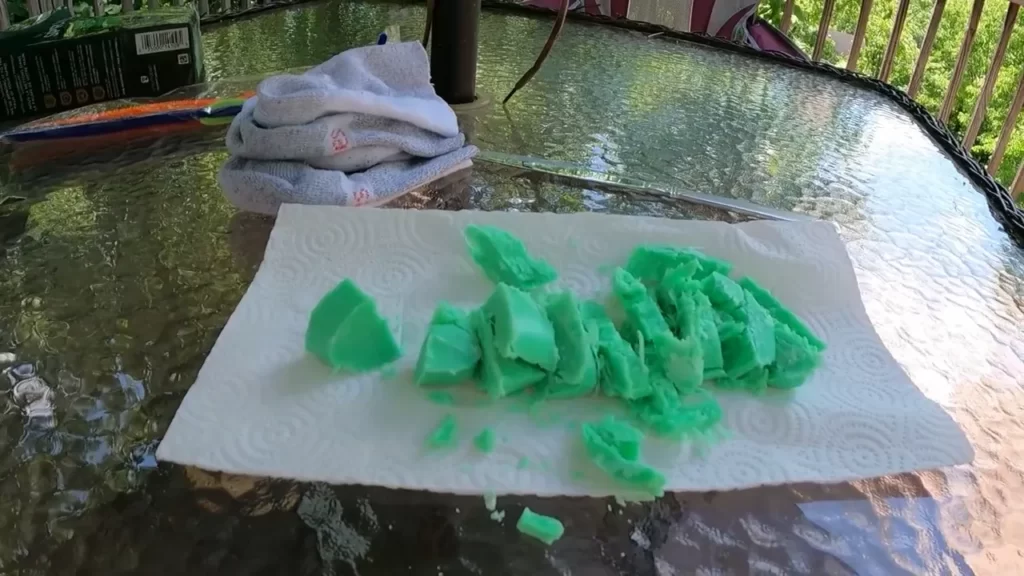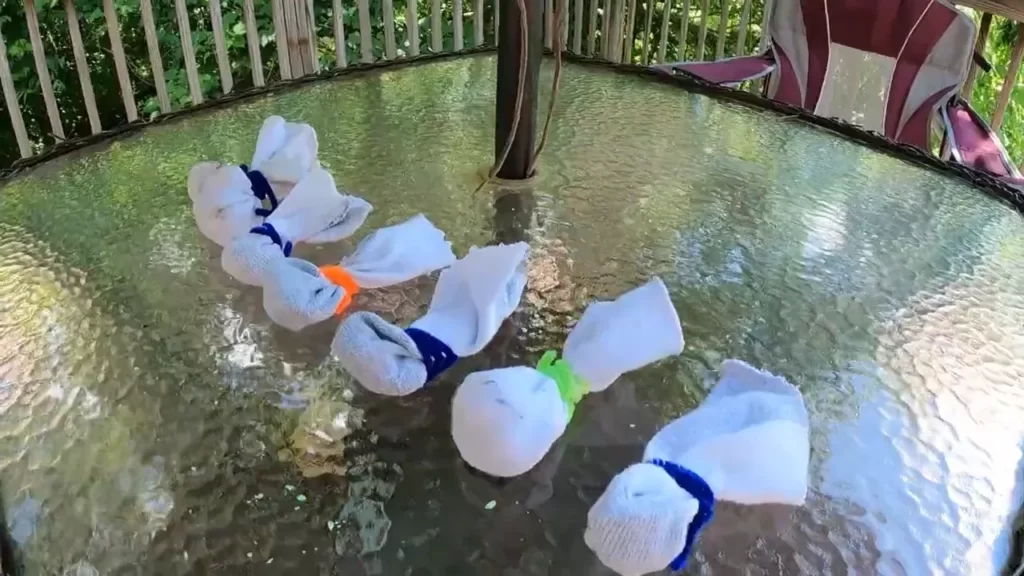Every household item carries tales of unconventional uses, and Irish Spring Soap is no exception. Originally crafted for personal hygiene, the soap has risen in discussions as a possible remedy for keeping cats at bay. But does this method carry any weight? Could a simple bar of soap deter our feline friends?
Indeed, many homeowners claim that the scent of Irish Spring Soap is effective in deterring cats from gardens and indoor spaces. With its strong, minty aroma, it is believed to be unappealing to cats’ sensitive noses, thus making it an unexpected household remedy for cat-related problems.
However, the real concerns go beyond its efficacy. Is using Irish Spring Soap as a cat deterrent safe for our furry companions and for us? And are there any potential risks associated with this unconventional method? These are pressing questions that demand clear answers.
Irish Spring Soap: The Claim
Common Beliefs About Its Effectiveness
Irish Spring Soap, recognized for its vivid green hue and robust scent, has become a staple in many households. Beyond its primary use as a body cleanser, a surprising claim has gained traction: the soap acts as a deterrent for cats. Many homeowners, particularly those with gardens or indoor spaces they’d like to keep cat-free, have shared anecdotes about its effectiveness.
When placed around the home or garden, it’s said that cats exhibit a distinct aversion to the soap’s presence. Speculation about the cause of this aversion leads to our next point: the aroma.
The Smell Factor: Why It Might Work
The reason why cats might steer clear of Irish Spring Soap centers largely on its aromatic properties. As we know, cats possess an acute sense of smell, exponentially more developed than that of humans. Aroma plays a pivotal role in their world, influencing everything from their territorial behaviors to their food choices.
The sharp, minty scent characteristic of Irish Spring Soap is, to many humans, refreshing. But for cats, this overpowering fragrance can be unsettling. Just as certain strong smells like citrus or certain essential oils might repel cats, the intense scent profile of this particular soap could be driving felines away.

Scientific Basis
What Studies Say
While numerous anecdotes abound regarding the soap’s deterrence properties, empirical evidence is less robust. As of now, there’s no concrete scientific study that either confirms or refutes the soap’s role as a cat repellent. Most of the claims hinge on personal experiences and observations, which, although valuable, lack the rigorous testing that scientific methods offer.
However, it’s essential to mention that cat deterrents involving strong smells aren’t new. Pungent or sharp scents have long been recognized to influence cat behavior, often deterring them from specific areas. But whether Irish Spring Soap’s particular aroma fits this category remains to be conclusively determined.
How Cats Perceive the Scent
The anatomy of a cat’s nose is incredibly intricate. Their olfactory system, with approximately 200 million scent receptors, allows them to detect even the most subtle of aromas. For comparison, humans possess around 5 million. This heightened sense of smell is believed to be the reason behind their sensitivity to certain scents.
So, when a cat encounters the potent fragrance of Irish Spring Soap, it’s not merely acknowledging the scent. It’s experiencing an aroma magnified many times over compared to human perception. Given this heightened sensitivity, it’s feasible that the soap’s aroma might be too strong or off-putting for many cats.

Safety Concerns
For Cats
Possible Reactions to the Soap
While cats might not favor the smell of Irish Spring Soap, the bigger question is about its safety. Can this soap harm cats?
Direct ingestion is, of course, a concern. If a cat were to bite or consume the soap, there might be complications. These could range from mild gastrointestinal disturbances, like vomiting or diarrhea, to more severe reactions depending on the amount consumed and the individual cat’s sensitivity.
Cases of Cats Getting Sick or Other Adverse Reactions
Anecdotal evidence suggests a few instances where cats, after coming into direct contact with the soap, exhibited signs of distress or illness. While these reports are sporadic, it underscores the importance of careful placement and monitoring when using the soap as a deterrent, ensuring it’s out of reach from curious feline paws.
For Humans
Is It Safe to Place Around Gardens or Homes?
From a human perspective, there’s minimal risk associated with placing Irish Spring Soap around the garden or home. As a product designed for human use, it’s safe to touch and handle. However, it’s crucial to consider the aesthetics and potential mess, especially if the soap gets wet or starts deteriorating outdoors.
Any Potential Allergic Reactions or Hazards?
For those with sensitive skin or specific allergies, direct contact with the soap may cause minor irritations. As with any product, individual reactions vary. It’s always a good idea to be aware of personal sensitivities and handle the soap accordingly. When placing the soap outdoors, remember that it can melt or become soft in hot conditions, potentially leading to a messy residue that may need cleaning.

Alternative Cat Repellents
Commercially Available Repellents
While Irish Spring Soap is often touted as a potential cat deterrent, the market is flooded with products explicitly designed to keep cats at bay. These repellents usually fall into one of several categories:
- Sprays: Often formulated with scents that cats find unappealing or irritating, these can be used indoors and outdoors. Popular ingredients might include citrus or other pungent smells.
- Granules or Pellets: Spread these on garden beds or soil to prevent cats from digging or marking territory. They often have a strong aroma that dissipates over time and might need frequent re-application.
- Electronic devices: These emit high-frequency sounds that are inaudible to humans but discomforting for cats. Ideal for larger outdoor spaces.
- Motion-activated sprinklers: A more tech-savvy solution. When a cat enters its range, the device sprays water, acting as a deterrent.
While these products are typically safe for both cats and humans, it’s always wise to read labels and ensure they fit the intended purpose.
Home Remedies and Their Effectiveness
If commercial solutions don’t appeal to you, several home remedies can also deter cats:
- Citrus peels: Cats are known to dislike the smell of citrus. Scatter lemon or orange peels around the garden or indoor plants.
- Vinegar: Its strong smell can act as a deterrent. However, be cautious when using it indoors as the scent can be overpowering for humans too.
- Rosemary or lavender: These herbs can be planted around gardens. Not only do they look and smell great to humans, but cats also tend to avoid them.
- Coffee grounds: Spread around the garden, they can deter cats while also enriching the soil.
While home remedies might be more eco-friendly and cost-effective, their effectiveness can vary. Factors like the cat’s individual preferences, the area’s size, and weather conditions (for outdoor methods) can influence results.

Practical Tips
Correct Way to Use Irish Spring Soap, If One Chooses To
If you’ve decided to give Irish Spring Soap a try as a cat repellent, here’s a step-by-step guide:
- Cut the soap: Divide the soap bar into smaller pieces or shavings. This increases the surface area, enhancing the scent’s dispersal.
- Placement: For gardens, place the soap pieces at regular intervals. Ensure they are close to plants or areas where cats frequent. For indoor use, placing pieces near entrances, windows, or specific off-limits zones can work.
- Protect from direct elements: If using outdoors, consider placing soap pieces in a mesh bag or container with holes. This prevents the soap from dissolving quickly in rain while still allowing the scent to permeate.
- Regularly replace: Over time, the soap’s scent will diminish. It’s crucial to replace or refresh the soap every couple of weeks or after heavy rain.
Other Precautions to Consider
While using any cat deterrent, including Irish Spring Soap, always keep the following in mind:
- Monitor the cat: Observe how the cat reacts to the deterrent. If it shows signs of distress, discomfort, or health issues, reconsider the method used.
- Be wary of other wildlife: If using in a garden, ensure the deterrent doesn’t negatively impact other wildlife or beneficial insects.
- Environment and waste: If you’re eco-conscious, consider the environmental impact. For instance, soap shavings might not be biodegradable and could contribute to waste.
- Safety first: Always prioritize the safety of both cats and humans. Even if a method works as a deterrent, its safety should never be compromised.
FAQs
Is Irish Spring Soap harmful to cats?
While not directly toxic, there’s limited data on its long-term effects when used as a deterrent. It’s always advisable to monitor any changes in your cat’s behavior or health when introduced to new substances.
How often should I replace the soap for effectiveness?
The strong scent of Irish Spring Soap diminishes over time. For consistent results, consider replacing it every 2-3 weeks or when the aroma weakens noticeably.
Can I use Irish Spring Soap inside my house to deter cats?
Yes, many homeowners place the soap in indoor spaces to deter cats. However, ensure it’s positioned where cats cannot directly consume or play with it.
Is there a specific type of Irish Spring Soap that works best?
There isn’t concrete evidence suggesting one variant over another. However, it’s the strong minty scent commonly found in most Irish Spring Soaps that’s believed to be the deterrent.
Conclusion
Irish Spring Soap’s role as a cat deterrent is an intriguing intersection of household remedies meeting pet behavior. While its minty aroma may indeed prove uninviting to some feline noses, it’s crucial to approach this method with caution and awareness.
Safety should always be paramount. Even if the soap isn’t directly harmful, understanding our pets’ reactions and ensuring they don’t ingest or mishandle the soap is crucial. In the quest for harmony in our living spaces, it’s essential to ensure solutions are both effective and safe for all inhabitants.
